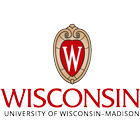- Tin tức & bài viết
- Find usIDP AustraliaIDP BahrainIDP BangladeshIDP CambodiaIDP CanadaIDP ChinaIDP EgyptIDP GhanaIDP Hong KongIDP IndiaIDP IndonesiaIDP IranIDP JordanIDP KenyaIDP KoreaIDP KuwaitIDP LebanonIDP MalaysiaIDP MauritiusIDP Middle EastIDP NepalIDP New ZealandIDP NigeriaIDP OmanIDP PakistanIDP PhilippinesIDP Saudi ArabiaIDP SingaporeIDP Sri LankaIDP Taiwan, ChinaIDP ThailandIDP TurkeyIDP UAEIDP VietnamIDP Corporate
- Social
- Tiếng Việt
Vị trí
United States
Bằng cấp
Bachelor Degree
Chi phí
USD42104
(2025)
Độ dài khóa học
8 Semester(s)
Học kỳ tiếp theo
03 September 2025
Điểm đầu vào
6.5
IELTSCOURSE_INFO
Your action plan
Bước 1
Shortlist your courses
Choose the best three courses you’re most likely to pursue.
Bước 2
Check your eligibility
Get an instant in-principle offer for courses with the IDP FastLane tag.
Bước 3
Apply through IDP Live
Fill out the form once and use it to apply to multiple courses.






